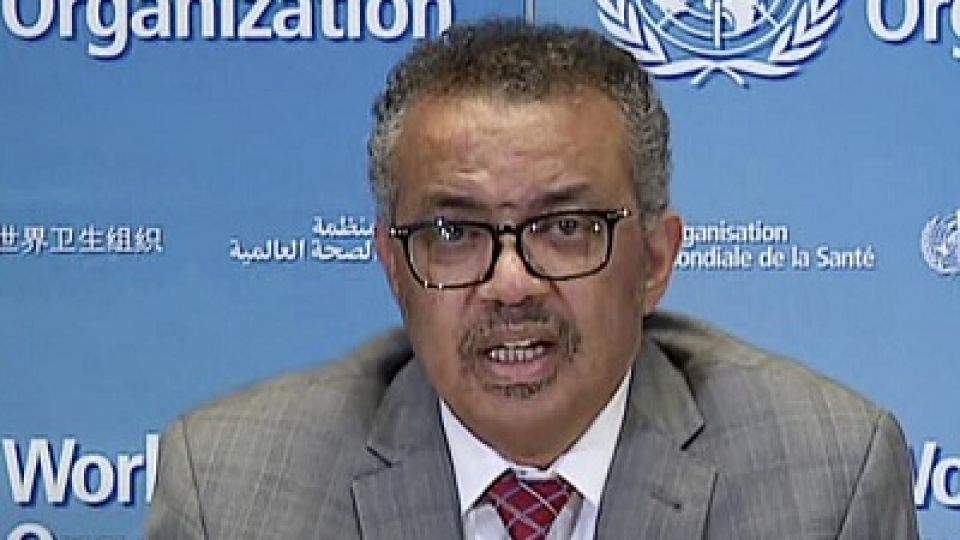by SAVIOUS KWINIKA
JOHANNESBURG, (CAJ News) – THE coronavirus (COVID-19) has been declared over as a global health emergency.
However it will be folly for any individual or country to let down their guard as the declaration does not mean the virus has ended.
Last Friday, the international community heaved a collective sigh of relief as Tedros Adhanom Ghebreyesus, the Director-General of the World Health Organisation (WHO), proclaimed an end to the public health emergency of international concern on COVID-19.
This followed the recommendation of the Emergency Committee, after it met for the 15th time since the outbreak of one of the most severe disease eruptions in living memory.
WHO, the United Nations’ (UN’s) specialized agency for international public health, on January 30, 2020 declared a public health emergency of international concern over the global outbreak. This is the highest level of alarm under international law.
Almost 7 million deaths have been documented but WHO believes the toll is almost three times higher, at least 20 million.
The United States was the worst hit, with over 1,162 million deaths from above 106,7 million cases. WHO got caught up in the conflict between China and the US, with the latter suspending funding of the health agency.
At the peak of the pandemic, health systems were severely disrupted globally.
As the COVID-19 ceased being only a health crisis, the global economy suffered massive damage following restrictions in the form of lockdowns.
Trillions were erased from economies, travel and trade disrupted, businesses shuttered and millions plunged into poverty.
“In the three years since then, COVID-19 has turned our world upside down,” Ghebreyesus said.
In South Africa, the country worst afflicted by the pandemic in the continent (38th in the world), the outbreak worsened corruption as funds allocated to stemming the outbreak were looted.
Government officials masterminded the theft. The corruption, coupled with the receding economy and widening gap between rich and poor led to unrest.
It was therefore with hope that Ghebreyesus declared COVID-19 over as a global health emergency.
He has been quick to point out that does not mean COVID-19 is over as a global health threat.
“This virus is here to stay. It is still killing, and it’s still changing. The risk remains of new variants emerging that cause new surges in cases and deaths,” Ghebreyesus said.
“The worst thing any country could do now is to use this news as a reason to let down its guard, to dismantle the systems it has built, or to send the message to its people that COVID-19 is nothing to worry about.”
This is the prevailing sentiment globally.
South Africa’s Department of Health noted an announcement by WHO.
“However, it is important to clarify that this doesn’t mean the pandemic is over,” the department stated.
“The fact of the matter is, the pandemic remains an important cause of morbidity and mortality especially in high risk populations such as the elderly and people living with comorbidities.”
South Africa has at the time of going to press recorded 102 595 deaths from 4 076 463 cases.
Save the Children noted the official end to the COVID-19 global emergency did not alter the fact that an estimated 100 million additional children were driven into poverty, and 1,5 billion had their education disrupted.
An estimated 10,5 million children lost a parent or caregiver to the virus.
Thus, the organisation has called on governments globally to give greater priority to children’s health, education and protection.
“The announcement by the WHO serves as a stark reminder that we live in a highly unequal world, one that is failing to protect children and their rights,” said Dr Zaeem Haq, Global Medical Director at Save the Children.
Haq added, “Global leaders must work together to prioritise and finance the work that must be done.”
Care International called for support to frontline health care workers across the globe, particularly women, many of whom are underpaid or unpaid and who helped end the pandemic.
Michelle Nunn, CARE Chief Executive Officer and President, reminded that before COVID-19, the world was already facing an acute shortage of health care workers and during the pandemic, tens of thousands of frontline health care workers lost their lives, and millions left their jobs.
“And, as we look beyond COVID, we still need millions more frontline and community health care workers – especially nurses and midwives – to prevent and respond to the next outbreak,” she said.
“We must continue to stand in solidarity with health care workers everywhere – ensuring they are paid fairly, trained well, protected from disease and overwork, and that their voices are heard,” Nunn concluded.
– CAJ News

